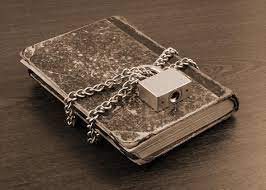Tuesday
The dispiriting news about school libraries forced to remove books continues, with the latest culprit being Walton County Schools in Florida. What strikes me about this particular list is the number of quality works found on it, including a Booker Prize winner, a Nobel Prize winner, and a National Book Award for Young People’s Literature winner. A number of these works I’ve actually read (which isn’t always the case) and so can personally vouch for.
First, though, I like the explanation offered up by New York Times columnist Charles Blow for the sudden spate of book bans and Critical Race Theory panic. Here he is on twitter:
During the summer of protests after the murder of George Floyd, millions of ppl – including incredible numbers of white kids – marched in defense of black lives. This shook the white conservative establishment to its core. In their minds their children had been indoctrinated.
All of the CRT panic, book banning and anti-protest laws are a direct response to this. They are trying to push white children’s exposure to – and sympathy for – racial issues back to the dark ages of Jim Crow ignorance. It is a simple as it is shocking.
Toni Morrison’s Nobel Prize-winning Beloved is on the list. So is Arundhati Roy’s Booker Prize-winning The God of Small Things. And Sherman Alexiewas a Young People’s Literature award winner for The Absolutely True Diary of a Part-Time Indian. Here’s the list of books removed from the Walton County School shelves:
–Mariko Tamaki, The One Summer
–Judy Blume, Forever;
–Christina Garcia, Dreaming in Cuban;
–Diana Gabaldon, Outlander;
–Arundhati Roy, The God of Small Things;
–Alex Gino, George;
–E. Lockhart, Real Live Boyfriends;
–Ellen Hopkins, Tricks
–Jennifer Mathieu, The Truth about Alice;
–Jonathan Safran Foer, Extremely Loud and Incredibly Close;
–Charlaine Harris, Dead until Dark;
— Tahereh Mafi, Unravel Me
–Megan McCafferty, Sloppy Firsts;
–Raina Telgemeier, Drama
–Sarah J. Maas, A Court of Mist and Fury;
–Toni Morrison, Beloved;
–Angie Thomas, The Hate You Give;
–Lois Duncan, Killing Mr. Griffin;
–Jay Asher, Thirteen Reasons Why;
–Jodi Picoult, Nineteen Minutes;
–Toni Morrison, The Bluest Eye;
–Sherman Alexie, The Absolutely True Diary of a Part-Time Indian;
–Khaled Hosseini, The Kite Runner Graphic Novel;
–Brian Katcher, Almost Perfect
I’ve taught Morrison’s Bluest Eye and Beloved and Roy’s God of Small Things in various classes and led discussions of Foer’s Extremely Loud and Incredibly Close, Alexie’s The Absolutely True Diary of a Part-Time Indian and Hosseini’s The Kite Runner Graphic Novel in my book discussion group. No race, class or ethnicity is idealized or demonized in these books. Instead, we see characters caught up in systems that are beyond their control and who try, with the limited resources they have, to make do. Sometimes they survive, sometimes they are crushed, but their humanity invariably shines through.
For those who oppose the idea of multicultural democracy, all these works are a threat. By challenging us to empathize with people unlike ourselves—and showing the harm that comes from intolerance—they function as an implicit criticism of those who want to hide their children in a safe, antiseptic and White bubble. In Bluest Eye, we watch the disintegration of a little Black girl who wants to look like Shirley Temple and who is abused by the adults in her world. In Beloved, we watch the horrors of slavery at work, including how it pressures African Americans to commit horrors themselves. In God of Small Things, attempts to challenge the caste system—along with scars left over from colonial rule—destroy two children. In Kite Runner ethnic and class hatreds destroy a beautiful childhood friendship.
Claiming that they are acting to protect their children, rightwing parents cancel works that might prompt their kids to think differently than they do. And they’re not wrong. These works will indeed open minds to other worlds and other perspectives. But if you raise your kids to fear those worlds and those perspectives, you will turn them into frightened creatures like yourselves.
As Bigger Thomas’s defense attorney says of such people in Richard Wright’s Native Son,
They hate because they fear, and they fear because they feel that the deepest feelings of their lives are being assaulted and outraged And they do not know why; they are powerless pawns in a blind play of social forces.
What they do not realize is that, through reading challenging literature, their children will learn how to negotiate the world, not live in fear of it. And as thinking beings, they will refuse to be pawns.


